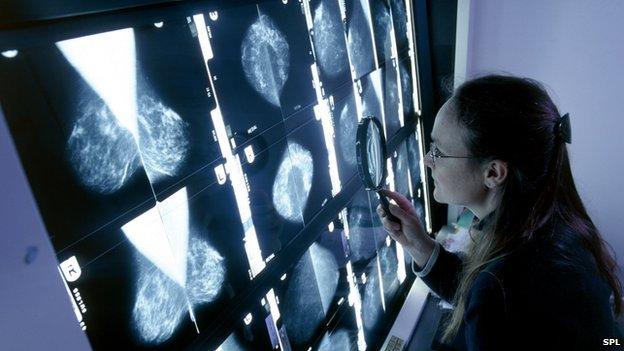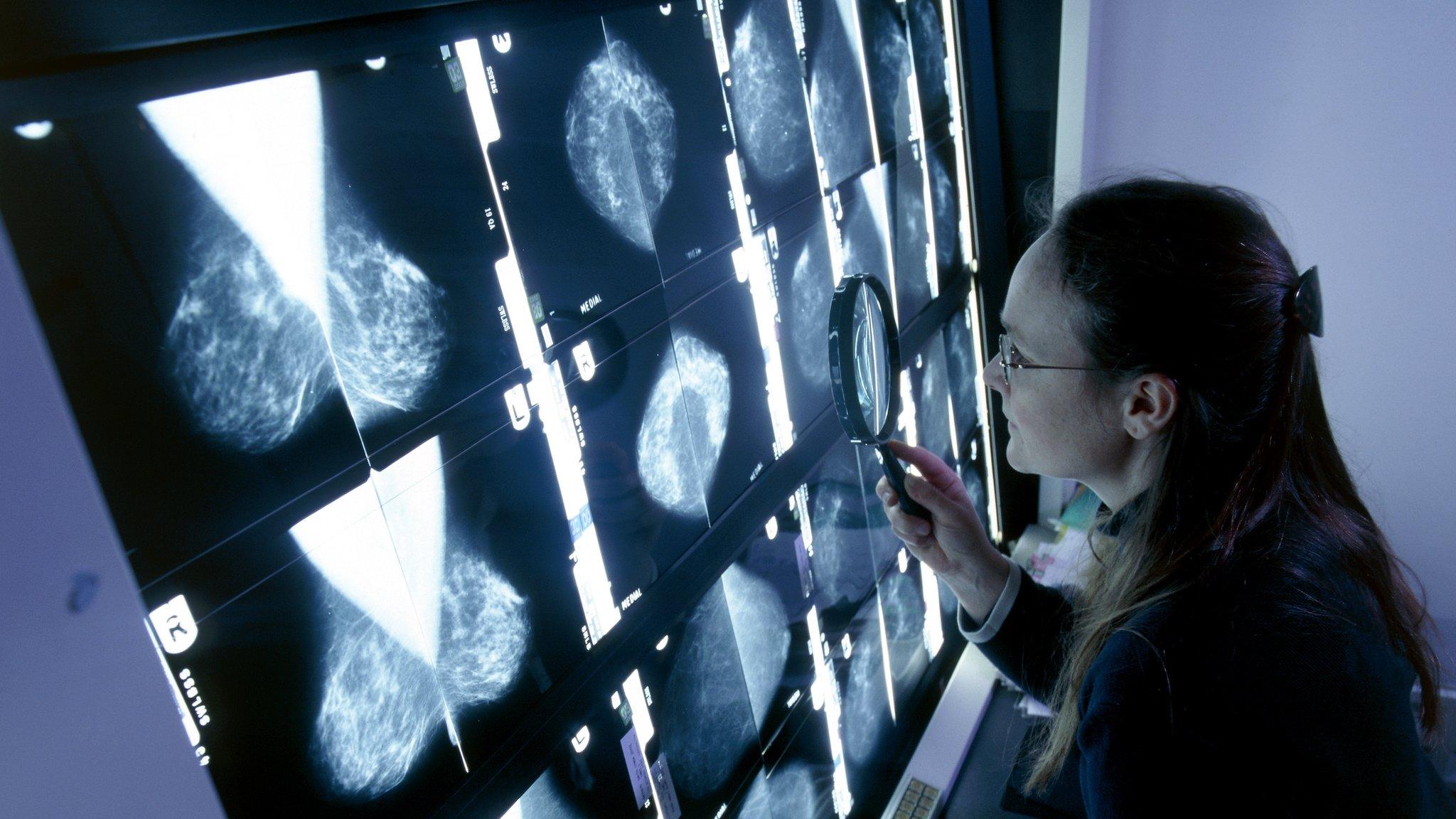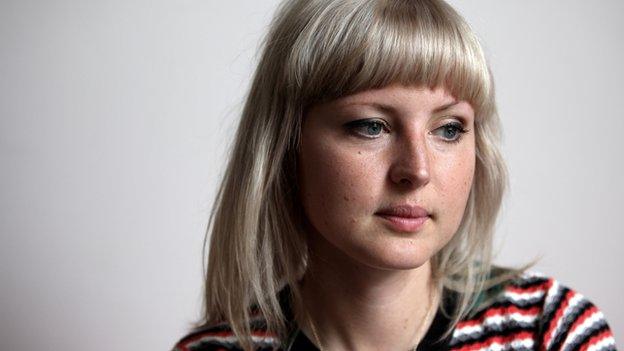NHS says no to new breast cancer drug Kadcyla
- Published
- comments
Terminal cancer patient and mother of four Hayley Kalinins says Kadcyla has allowed her to feel "really well"
A pioneering new breast cancer treatment will not be routinely available in England and Wales, the NHS drugs advisory body NICE is proposing.
The drug - Kadcyla - adds six months of life on average to women dying with an aggressive form of breast cancer.
NICE criticised makers Roche for not setting an affordable price, in its updated draft guidance.
The drug costs £90,000 per patient but Roche said it had offered a lower - undisclosed - price in recent talks.
The two organisations have been in negotiations since the first draft guidance from NICE (the National Institute for Health and Care Excellence), rejecting the drug, was published in April.

Cancer drugs row: A sign of things to come?
There is a real sense of sadness - and anger for that matter - that the new breast cancer drug Kadcyla looks unlikely to be made routinely available on the NHS, something that is obvious from the bitter language being used by both sides.
The decision by England's official NHS advisory body, the National Institute for Health and Care Excellence (NICE), to reject Kadcyla prompted manufacturers Roche to claim the system was "broken".
NICE - not known for its strong use of language - responded by saying it was "really disappointed" in the approach taken by the drugs firm.

Price row
While this latest guidance is only the final draft version, there tends not to be any major changes when the official recommendations are published - normally a few months after this stage.
The original cost of Kadcyla worked out at £90,000 per patient - that is based on the standard 14 months of treatment.
Roche's Jennifer Cozzone: "NICE is the first organisation to say no to Kadcyla"
Roche said it had offered to lower the price "substantially", but NICE said the new price - which is not being disclosed - made little difference.
Kadcyla is used to treat people with HER2-positive breast cancer that has spread to other parts of the body and cannot be surgically removed.
About a fifth of breast cancer cases are HER2-positive, and it is thought this drug could benefit 1,500 women a year.
It works by seeking out and destroying cancerous cells, attacking them from within.
Its novel action means it is unlikely to cause the side-effects, such as hair loss, seen with many other types of chemotherapy.

For advanced cancer, the aim is remission rather than cure
Kimberley Mawby, 44, who managed to get the drug through a trial at London's Royal Marsden Hospital, described it as "amazing".
She said: "I can have a great life. I don't feel ill, the side-effects are so minimal I lead a really normal life.
"And I know how much it costs but at the end of the day you can't put a price on your life and that's what [Roche] are asking people to do.
"For all the people out there that need this drug, I really believe they should be able to get it"
'Huge blow'
NICE chief executive Sir Andrew Dillon said: "We are really disappointed that Roche were not able to demonstrate more flexibility.
"The company is well aware that we could not have recommended Kadcyla at the price it proposed."
Jennifer Cozzone, head of health economics and pricing at Roche, said: "We're very disappointed with this decision and, frankly, not just for patients who would have had the opportunity to receive Kadcyla with a positive decision.
"Considering Kadcyla is the eighth medicine in a row that NICE has declined to make available to women with advanced breast cancer in the UK, we don't believe this is a question of the price of Kadcyla.
"We believe that this is an issue with how NICE considers medicines in advanced breast cancer."
Sally Greenbrook from Breakthrough Breast Cancer: "It is a brilliant drug but incredibly expensive"
Dr Jayson Dallas, of Roche, added: "NICE's rejection of Kadcyla demonstrates quite simply that their current system is broken, not fit for purpose and in need of a complete overhaul when it comes to advanced cancer."
Mia Rosenblatt, head of policy and campaigns at Breast Cancer Campaign, said the news was a "huge blow".
"It is vital that this is not the end of the line for Kadcyla in respect of NICE approval, and we ask NICE and Roche to urgently revisit their negotiations to find a solution.
"It's not too late to review the cost of the drug," she added.
It means the only way women will be able to get access to the treatment is through the Cancer Drugs Fund, for which their doctors would have to make special requests.
Since April more than 200 women have been given Kadcyla in this way, but the Cancer Drugs Fund is due to end in 2016.
While the guidance applies to England, Wales have said they will follow suit. Officials in Northern Ireland and Scotland are considering the NICE recommendations. None of them currently funds the drug.
- Published8 August 2014
- Published7 August 2014

- Published23 April 2014

- Published25 March 2014
